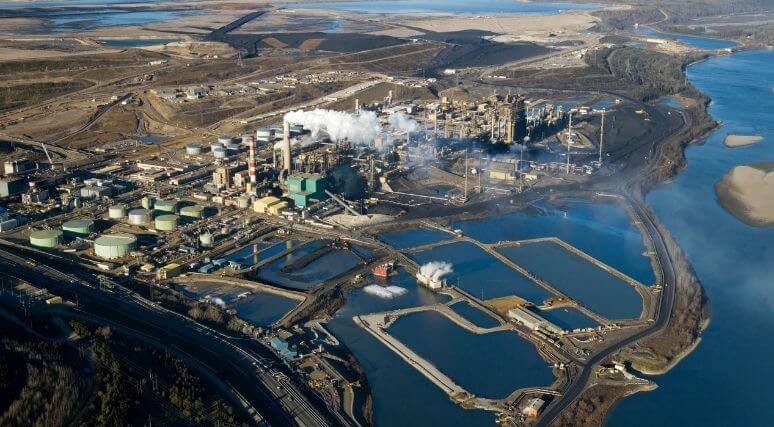This article originally appeared in the Financial Post.
By Heather Exner-Pirot, March 6, 2023
Canada’s oilsands have faced strong headwinds over the past decade. Coming online just as their main customer, the United States, saw its own oil production explode thanks to shale, its economics have been pretty tough. And they’ve been compounded by a hostile regulatory and political environment in an Ottawa fixated on emissions. But as shale fields pass their peak production, the oilsands are now poised for prime time.
In both geopolitical and economic terms, the shale revolution — the combination of hydraulic fracturing and horizontal drilling that opened up vast U.S. oil and gas reserves in shale formations — has been one of the most important technological developments of recent years.
In the last decade and a half, U.S. oil production went from five million barrels a day to 12 million, transforming the world’s biggest oil importer into its biggest producer — an unprecedented shift in the global energy landscape. Shale oil has the additional benefit of being easy to ramp up and down, making the U.S. a swing producer able to control world prices, a role previously played by OPEC
But shale’s astonishing rise is expected to be followed by an equally rapid decline. U.S. shale fields will soon plateau. Already wells are becoming gassier and more expensive to drill, and new wells are less productive.
Canada’s oilsands could hardly be more different. They comprise the world’s third-largest reserves: 1.8 trillion barrels of oil, of which just under 10 per cent, or 165 billion barrels, is technically and economically recoverable with today’s technology. Canada currently extracts over one billion barrels a year, which means we have centuries of inventory. Add our conventional production, and we are already the world’s fourth-largest oil producer.
Cheap shale oil
Many oilsands operations are mines, from which oily sand is scooped up and taken to facilities where bitumen is extracted from the sand. Other techniques involve injecting steam underground, heating the bitumen and making it fluid enough to be pumped out. These operations are expensive to build, but once up and running they are cash machines. They require very low levels of capital to maintain and have very low decline rates. Current oilsands operations have decades worth of low-cost production life left. By contrast, many shale wells have just a couple of years.
Thanks in large part to cheap shale, the West Texas Intermediate crude oil benchmark sat below $US60/barrel for most of 2015 to 2020. But now climate and regulatory policies, ESG financing trends, and the effect of cheap shale itself, which over that period dampened investment in oil and gas, could lead to oil prices of $US100+/barrel in the near and medium term — with almost all of Canada’s oilsands inventory still in the ground, ready to reap the benefit of higher prices.
The decline of American shale has huge political implications for Canadian oil. Some policy-makers contemplate a “just transition,” but a more likely scenario — which we should be preparing for — is that global oil demand will grow at least until the 2030s and then level off at something above 100 million barrels/day, with the U.S. share of production declining.
If that does happen, oil prices will rise to a point that threatens the global economy and creates an energy crisis, while OPEC countries and Russia use their market control and energy exports to advance their own illiberal foreign policy goals. Canada must offset the worst of it.
Within the next decade, someone will need to start filling the gap left by the imminent decline of American shale. Our allies, not least the United States, should want to make sure it is us. We have abundant oil that, if we invest now in carbon capture, we can provide in a more environmentally responsible way.
People are always entitled to hope for the best: maybe revolutions in finance, labour, policy and technology will allow us to quickly reduce oil consumption and hit net zero, not only in Europe and North America, but in the developing countries where the other seven billion of us live and where energy demand is growing fastest.
But those responsible for our security must also prepare for the worst. And that means ensuring Canadian oil is available to those who need it, for as long as they need it.
Heather Exner-Pirot is director of energy, natural resources and environment at the Macdonald-Laurier Institute.





